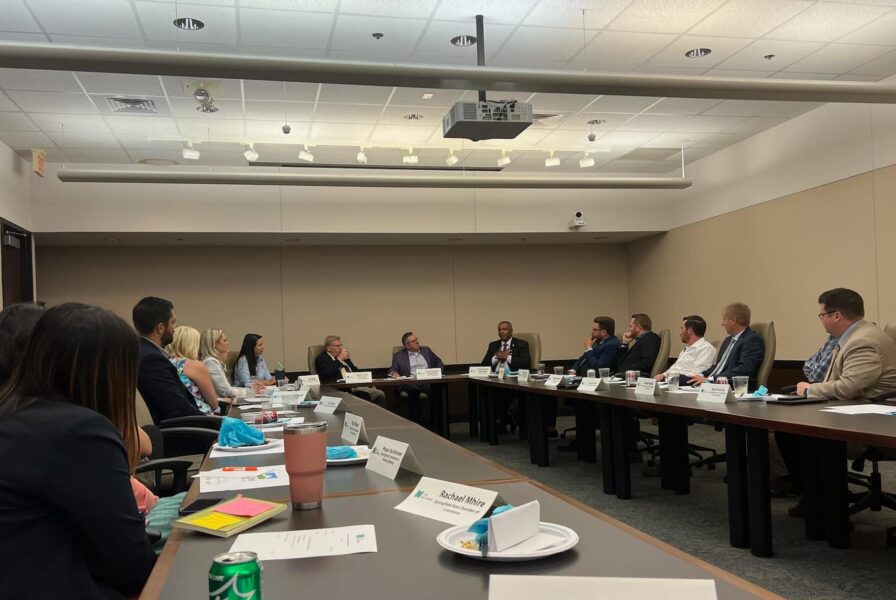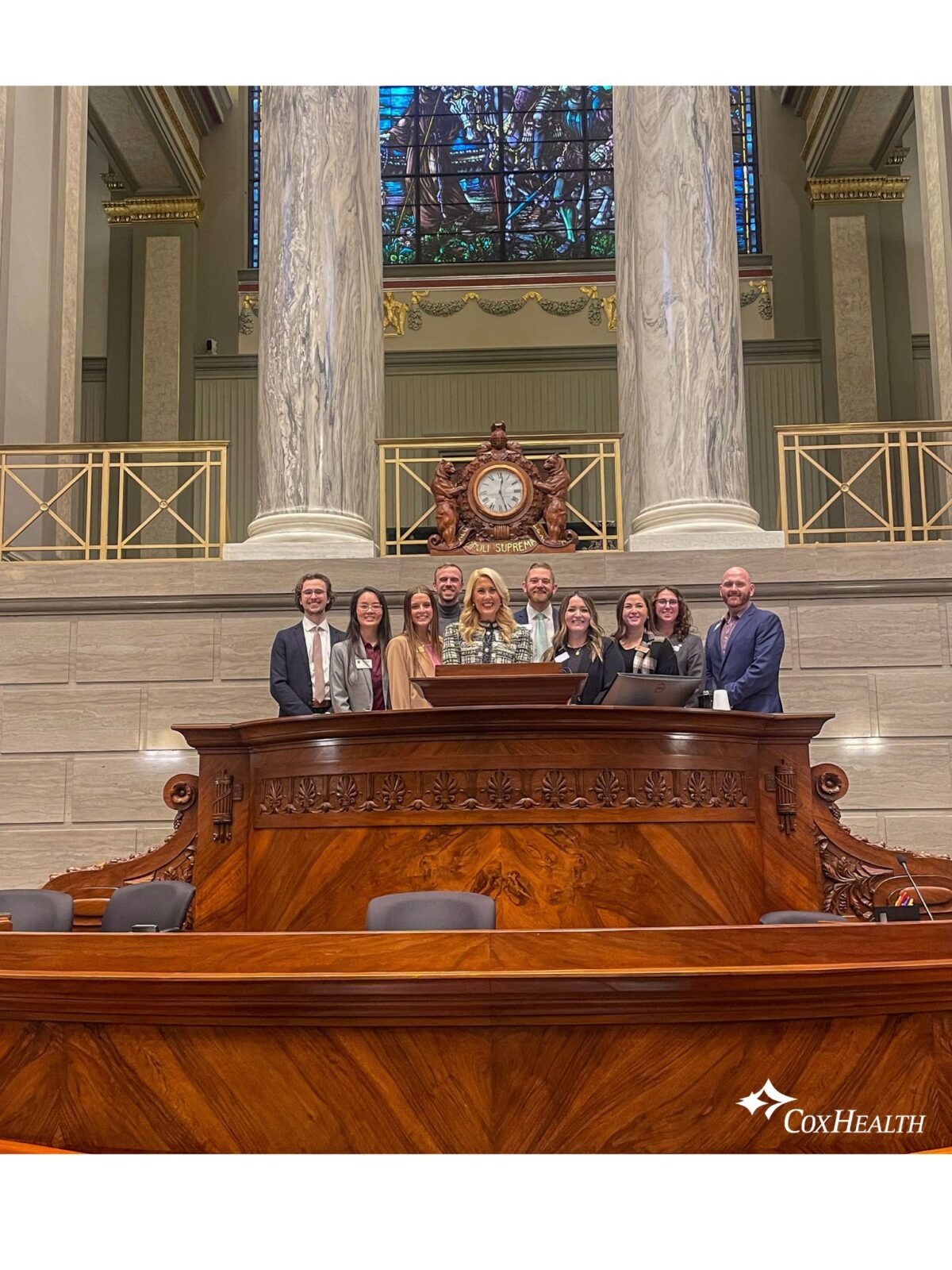Members of the Network for Springfield’s Young Professionals Leadership Council had the opportunity to discuss community topics, opportunities for growth, areas for improvement and ways that young professionals can support city-wide efforts with Springfield City Council members on July 6.
Mayor Ken McClure, Councilman Richard Ollis, and Councilman Abe McGull shared their insights on a wide variety of topics, including comprehensive planning efforts, federal funding opportunities, challenges related to the business community, and more.
Although the pandemic temporarily delayed efforts to produce an updated city comprehensive plan, the visioning document for the future growth and development of Springfield is nearing completion. The comprehensive planning process, known as ForwardSGF, has engaged many different stakeholders, citizens, and community leaders and organizations to create a guide that will steer the city for the next 20 years. The first public event to unveil the plan is scheduled for late July.
Mayor McClure commended the engagement of The Network in the feedback process and appreciated the strategic input of young professionals on what they hope to see in Springfield over the next two decades.
A significant challenge many communities are facing includes the lack of available and attainable housing. Councilman Ollis has championed efforts to address this through the Restore SGF program, which is focused on revitalizing neighborhoods to increase available housing stock, improve access to more quality housing, encourage home ownership and support strong neighborhood development. Councilman Ollis explained that this effort originated from the continued struggle with nuisance and dangerous properties in the city, along with the realization that 60% of the housing stock in Springfield is rented, not owned.
Councilman Ollis further explained that the Restore SGF program is critical to the long-term sustainability of our workforce.
“We decided that we have to address this problem from the other direction and start investing in these neighborhoods,” Councilman Ollis said. “We have to have somewhere to live for those we want to continue serving our community.”
To date, the city has secured over $250,000 in grants and $1 million pledges in loans to support the program, along with the upcoming* allocation of local ARPA funding.
Councilman Abe McGull has a unique perspective on the assets Springfield has to offer based on previous local service in other communities, including previously serving as Mayor of Pleasant Valley, Missouri. He shared that his approach to public service is guided by the need to ensure a community is operating in the best way possible. One of the greatest assets he has found in Springfield is the balance of established community leadership along with the synergy of emerging leaders wanting to make a difference.
“You want people to look at Springfield and want to live here,” Councilman McGull said. “So, you have to consider the big picture: how can a decision for one person affect the entire community?”
One of these transformational decisions Council has been tasked with making is how to allocate the $40 million in funding Springfield has received through the American Rescue Plan Act (ARPA).
Mayor McClure updated on the conversations happening at both the state and local level and how that funding will be allocated.
The Council ARPA Review Committee, led by Mayor Pro Tem Matt Simpson, was charged with leading the process to allocate funding by 2024 by reviewing requests, engaging the public and ultimately providing recommendations. Of the over $210 million in project requests received, the committee recommended funding for 16 projects that focus on trail development, housing and the homeless population, higher education, arts and tourism, mental health and much more. The city also recently received a significant portion of the state’s ARPA allocation to invest in organizations and capital projects, presenting a meaningful opportunity to support the future growth of Springfield.
Among the influx of federal dollars and investment, concerns that continue to plague the business community remain, including supply chain delays, workforce shortages, and ongoing development challenges. Councilman Richard Ollis noted the importance of quality of place as the city considers solutions to the lack of skilled workers.
“People used to follow jobs, but now they look at the community they want to live in before the job they want to have,” he explained.
Additionally, a climate that offers consistency and clarity is conducive to business and development, and is also key to attracting and retaining talent and investment. The recent court decision to place a Galloway area zoning issue on the November city-wide ballot has drawn concern related the clarity and consistency necessary for future growth within the city.
“Business and development, and the money that follows it, involve trust,” Councilman Ollis said.
Furthermore, he mentioned that business and development do not solely rely on trust, but they also rely on the time to market to be speedy. Council expressed concern regarding future development based on a potential lack of trust in this process and encouraged continued young professional engagement in supporting the business community’s efforts to increase economic opportunity.
*As of the publish date of this story, the City of Springfield has not yet approved the allocation of their portion of ARPA dollars. City Council is expected to approve the project recommendations on July 25, 2022.



